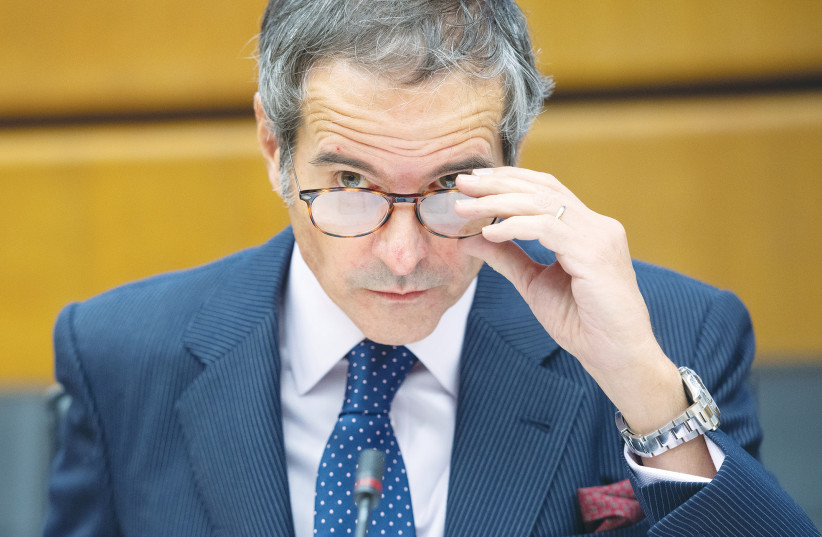Stability is restored. And the Iranian nuclear threat is back to the pattern of long, dragged out but hopeful negotiations to a deal.
That was the message the IAEA and Tehran each wanted to deliver on Sunday, each for their own purposes.
An emergency trip by IAEA Director-General Rafael Grossi to the Islamic Republic once again saved the day from an imminent nuclear crisis, or, it is hoped, that the West will be hypnotized by that message back into complacency.
What did the IAEA’s new deal really achieve with Iran?
Grossi is widely respected by Israeli intelligence officials as one of the more serious international officials to deal with the nuclear issue.

So it was almost painful watching him do intellectual backflips trying to present a success, while admitting that he achieved none of his deeper goals.
Iran wanted to avoid a public condemnation by the IAEA Board of Governors, and a negative referral to the UN Security Council regarding its nuclear weapons program.
But as former IDF intelligence chief Aharon Zeevi Farkash pointed out at a conference on Sunday, Tehran nearly always has better long-term vision and strategy than its rivals.
The Islamic Republic has run roughshod over the US and the other world powers for months in its nuclear obligations under the 2015 JCPOA nuclear deal.
Yet the second it offered any opening to the IAEA, all was essentially forgiven.
More than three-and-a-half years after the Mossad revealed the full depths of Iran’s nuclear weapons program, and two years after the IAEA started to press for answers, Iran has offered nothing.
The Islamic Republic has not stopped enriching uranium to 60%, multiple jumps above the 5% it is allowed under the JCPOA.
IAEA cameras were mysteriously broken or damaged, and were not tended to for months.
What did the IAEA and the world miss during that time period? What did we all miss during the period from May until now, when many of the other cameras may also have had technical issues since they were not replaced after three months as standard, but after around seven months?
Grossi admitted honestly that he had no answers, but said the main thing was that “communication” with the new government had been established, and this would eventually allow broader resolutions.
In truth, this may be the turning point leading to an eventual return of the US and Iran to the JCPOA.
Looking into the abyss of having to adopt the Trump administration or Israel’s desired Iran policy, the Biden administration will likely be ready to make some additional concessions to Iran regarding its advanced uranium centrifuges and some other issues.
But the quick willingness of the IAEA and the West to forgive everything and start over from square one sends a clear message to new Iranian President Ebrahim Raisi that brinkmanship works.
Now there will be a race to see if a real deal – with however many holes – is reached before Israel starts to feel that Tehran is too close to the nuclear threshold, and that it must use force to end the march.
